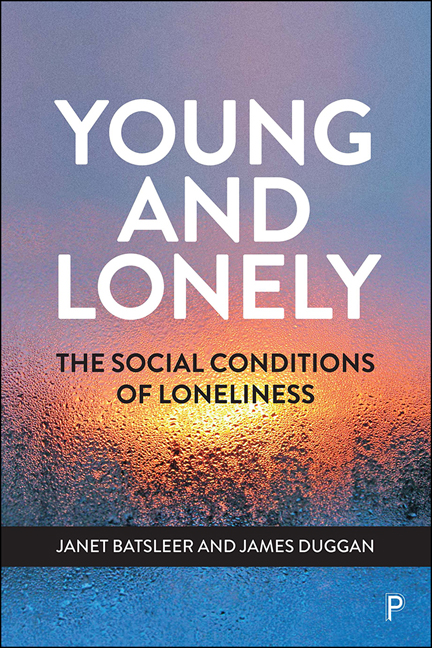Book contents
- Frontmatter
- Contents
- Notes on the Authors
- Acknowledgements
- Preface
- 1 Animate, Attune, Amplify
- 2 Finding Oneself a Loneliness Agenda
- 3 I’M New Here: Creating a New Research Project and A Young Person Led Research Agenda
- Part I The Social Conditions of Loneliness
- Part II The Experience of Loneliness
- Part III Building Friendship and Connection
- References
- Index
11 - Asking For Help and Offering Connection
Published online by Cambridge University Press: 18 March 2021
- Frontmatter
- Contents
- Notes on the Authors
- Acknowledgements
- Preface
- 1 Animate, Attune, Amplify
- 2 Finding Oneself a Loneliness Agenda
- 3 I’M New Here: Creating a New Research Project and A Young Person Led Research Agenda
- Part I The Social Conditions of Loneliness
- Part II The Experience of Loneliness
- Part III Building Friendship and Connection
- References
- Index
Summary
‘Aye, he's my pal … he's a weird kinda pal cos we fight all the time, but he's always watching my back, he's there for me.’ (Joe, aged 16, Glasgow)
Joe had spoken eloquently about how he had at times gone away to be alone and face his own feelings that he would be better off dead. It was immediately after he spoke about that in our discussion session that that he turned to the friend sitting next to him and spoke so appreciatively and honestly of him. To know you have someone, a pal, watching your back can be life-saving.
Young people are always creating new ways of finding mutual support as they struggle to sustain connection. This chapter seeks to emphasise the importance of acknowledging young people's activity and agency in this process of building support as well as the agentic networks they are part of.
The difficulties faced in the context of institutionalised and professionalised forms of help are real and these are also explored here. We argue that attention to the resourcefulness of young people and their existing potential and imagined networks of support could mitigate some of the difficulties faced in the context of professionalised helping.
This chapter also explores the complexity of asking for help and giving and receiving it at a time in life when a growing independence is prized above everything. Young people are often keen not to rely on help from parents or guardians. Parents and guardians sometimes wish to begin to withdraw from the kind of parenting which young people seem to need. Others may wish to continue with patterns of parenting more appropriate to earlier periods of childhood. Complex family dynamics around support and independence may also be refigured in other settings where adults are seeking to offer help and support to young people. Beyond these intrapersonal dynamics are the environments which ‘support agencies’ occupy, their friendliness and openness or the high thresholds they offer for engagement, the complex pressures staff face in a period when projects are often underresourced to meet the demand they experience. It is often said in reflective moments among youth work professionals: ‘There are no hard to reach young people, but there are many hard to reach support agencies.’
- Type
- Chapter
- Information
- Young and LonelyThe Social Conditions of Loneliness, pp. 121 - 130Publisher: Bristol University PressPrint publication year: 2020



